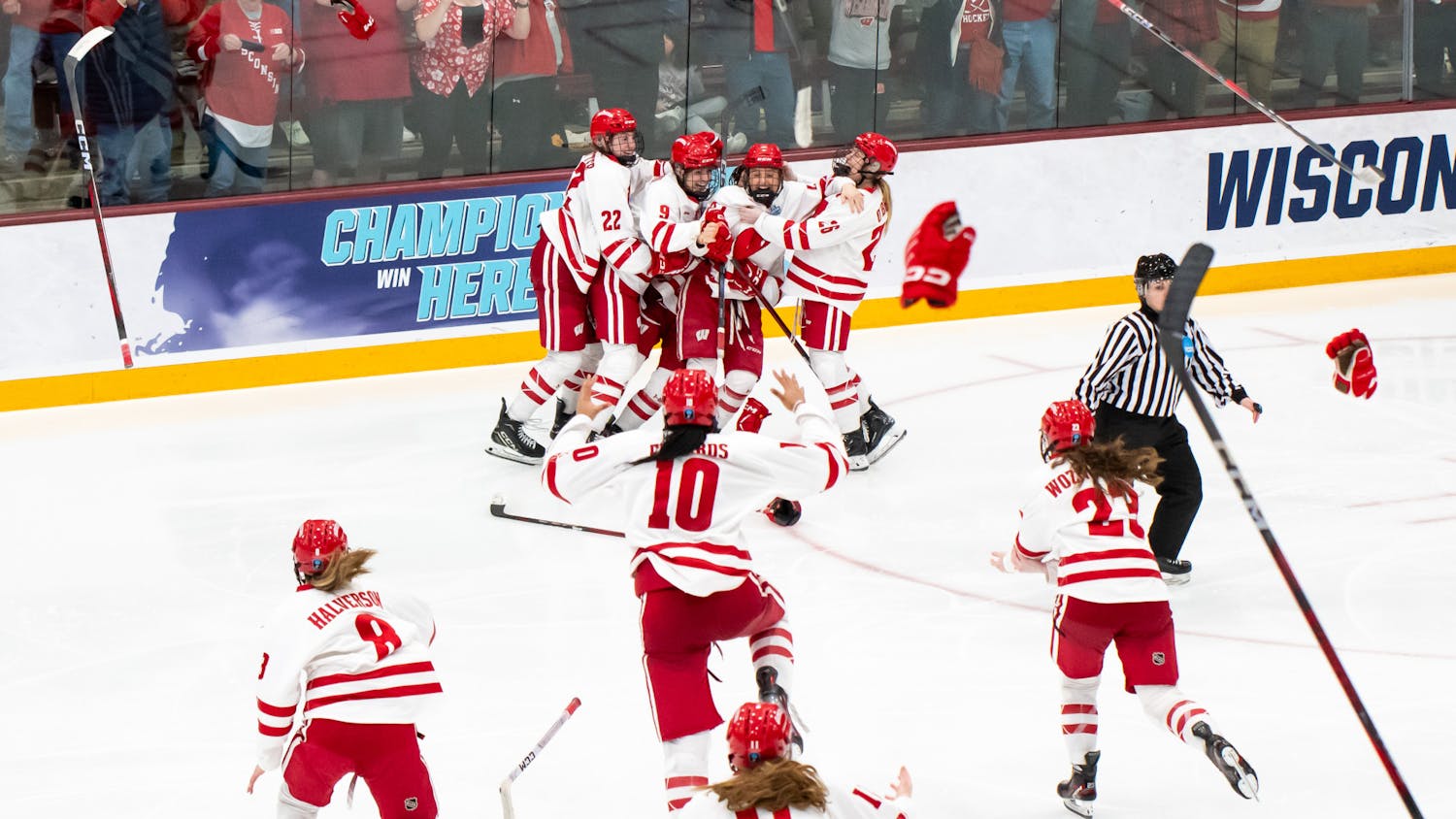Incumbent District 4 Ald. Michael Verveer and challenger Maxwell Laubenstein debated their policy proposals at a candidate forum hosted by University of Wisconsin-Madison student groups Thursday.
The debate, organized by the Associated Students of Madison, BadgersVote and the Campus Area Neighborhood Association, centered around the candidates’ plans to assist UW-Madison students and address Madison’s affordable housing crisis.
The Common Council’s District 4 covers much of the downtown area, including Capitol Square and parts of upper State Street. Verveer has served as District 4 Alder since 1995 and has run unopposed since 1999.
“I believe that I have a proven track record of being able to get things done,” Verveer said. “I absolutely have unfinished business that I wish to work on.”
Laubenstein, a student activist and UW-Madison senior studying biological systems engineering, said he was driven to take action after witnessing the hardships community members faced during the COVID-19 pandemic.
“Once I started to see that I didn’t have to wait half my life to have an impact, to uplift those around me, I couldn’t stop,” Laubenstein said. “I really want to use the connections I’ve built in this community to help raise those voices and help make those changes apparent.”
Verveer said his work representing students’ needs began when he was in student government, where he proposed the student bus pass program he passed when he entered city government.
“I worked on a student bus pass program when I was in student government,” Verveer said. “One of the first pieces of legislation [during] my first term in office that we successfully had adopted was the city agreeing to a student bus pass program.”
Verveer said his continuous dedication to UW students is reflected in the policies he passed, including a stricter smoke alarm ordinance after a house fire killed a college student in 2007, the introduction of 18+ entertainment licenses allowing students under 21 to attend live entertainment in buildings selling alcohol and a requirement that landlords put locks on the exterior doors of apartments.
“I have worked on behalf of students for much of my life at this point,” Verveer said. “My passion for assisting students is never ending. It will continue, and it’s something that I care deeply about.”
Laubenstein detailed his work as a student organizer and activist, through which he helped expand the university’s mental health and sexual violence response programs
“We were able to expand mental health resources … to allow for the hiring of new mental health professionals,” Laubenstein said. “We were able to expand the resources allotted for the sexual violence response program within UHS [University Health Services] in order to directly respond to the currently overwhelmed system.”
Laubenstein plans to work with groups such as the BIPOC Coalition and Promoting Awareness, Victim Empowerment (PAVE) to provide resources to survivors and help prevent sexual violence, he said.
“The next step is also changing the culture and environment that promotes violence,” Laubenstein noted.
The candidates also discussed their plans to build more affordable housing in the downtown area.
Verveer said state law restricts what the city is able to do to build affordable housing in new developments, especially after the Wisconsin Court of Appeals struck down an inclusionary zoning ordinance that required new developments to include affordable housing. However, he said the city should use a “carrot approach” such as density bonuses to incentivize private developers to build more affordable units.
“I’m one of the sponsors of an ordinance that … will hopefully increase the amount of lower cost housing in the downtown through density bonuses by amending our zoning code in a way where it’s permissible under state law [and] asking developers to consider increasing the number of units within their developments,” Verveer said.
The ordinance, introduced to the Common Council last Tuesday, would change the zoning code to allow developers to build additional stories on existing downtown properties if the developers agree to allocate at least half of the new space to affordable housing units.
“Each and every conversation I have with developers proposing housing in downtown begins with the question of affordability, and it doesn’t end there,” Verveer said.
Laubenstein criticized the Common Council’s current approach to housing development. He said the city focuses too heavily on building larger quantities of units without ensuring the housing being built is affordable to students and low-income renters.
“We are seeing the label of affordable housing being used on units that cost upwards of [$]800 to $900, which is well beyond what is affordable by many students and low-income residents,” Laubenstein said. “The average rent in Madison is $1,500, which is completely inaccessible to the majority of the population, especially in the downtown in District 4.”
Laubenstein proposed changing the focus of the city to reducing the cost of rent per square foot and expanding Tax Increment Financing (TIF) programs to subsidize affordable housing developments.
“We could elect a city council that’s willing to support and proceed [with] development plans that don’t just expand housing [but] expand housing in a way that’s responsible and affordable to communities that live here,” Laubenstein said.
The Common Council elections will be held April 4.
Francesca Pica is the editor-in-chief for The Daily Cardinal. She previously served as the city news editor. She has covered multiple municipal elections, state politics and is a leading reporter on Madison labor issues. She served as an intern for The Capital Times, currently serves as a WisPolitics intern and will also intern with the Wisconsin State Journal this summer.






